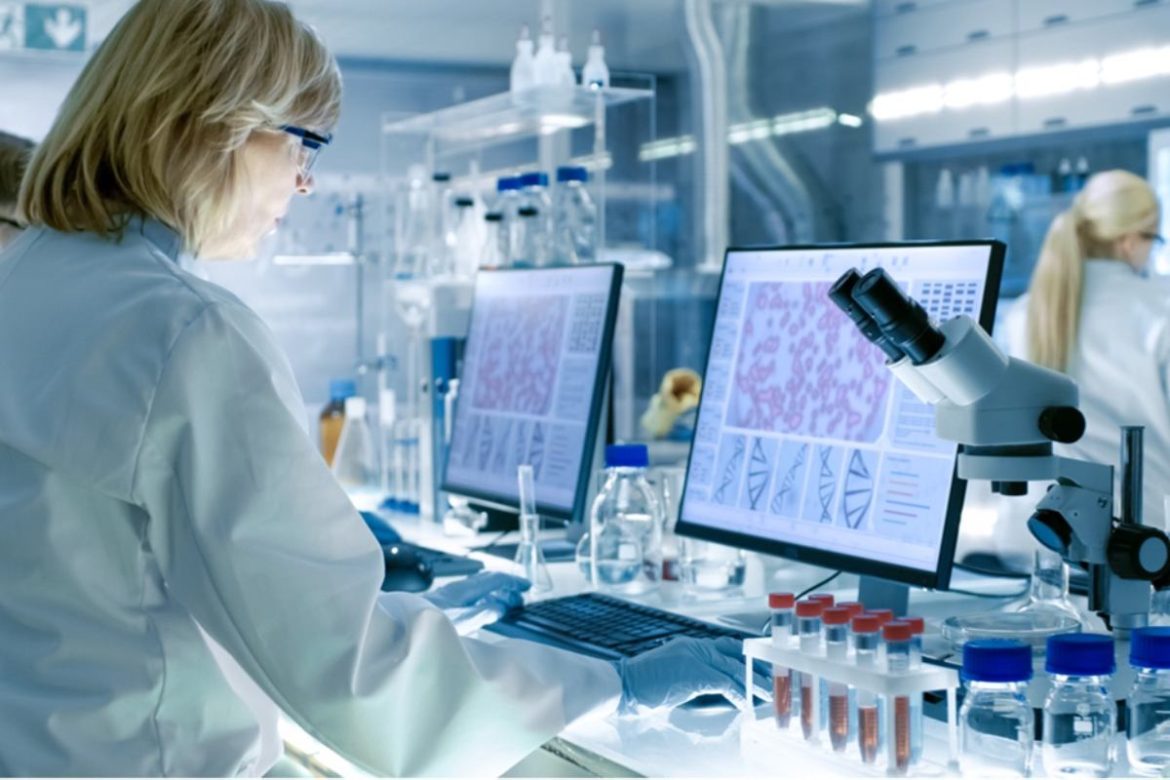How Technology Changes Medical Industry? – Considering advances in digital healthcare technologies, such as AI, 3D printing, VR/AR, nanotechnology, and robotics, the future of healthcare is taking shape right in front of our eyes. Companies all across the world are trying to keep pace with the market, adjusting to the digital world we live in. Both patients and healthcare providers now use devices that we have never imagined and want to benefit from using technologies as much as they can.
The future of medicine is definitely all about technology. Although some are sceptical about the changes we will see soon, nothing can stop the healthcare market from evolving in that direction. At some point, our lives will be changed through the power of digital technologies, and medicine won’t be an exception. Therefore, it is vital for healthcare organisations and clinics to know how tech tools are changing our world and what we can see in the new year.
Table of Contents
Technology & Humans
Many clinics consider that technology may replace humans, and they have even seen evidence of that during surgeries. However, the key thing here is that technology is not going to replace humans in the next 10-15 years. Instead, it is used by clinics to power up human work. Experts believe that using tech tools will aid and enhance our lives if clinics get on board with technological advances. If healthcare organisations learn how to benefit from the software, patients will get much better care in the next few years.
As we can see now, technology in healthcare and medicine could transform inappropriate healthcare systems into efficient ones, offering cheaper, faster, and more accurate solutions for diseases. In addition, this interaction will greatly benefit medical staff that always have a high load that makes them overwhelmed.
Artificial Intelligence (AI)
Artificial Intelligence (also known as AI) is an incredibly popular tool that is believed to revolutionise healthcare entirely. Being able to collect and analyse medical records effectively, AI algorithms will design treatment plans, develop drugs much faster and diagnose cancerous and noncancerous tissue samples.
Artificial Intelligence can also be used by clinics to offer pre and post-operation support, reducing the load of nurses. Since it can be taught to answer all questions and is believed to offer sympathy, patients don’t need to bother staff every time – they will be able to discuss questions with AI. This technology is also used in chatbots.
Augmented Reality
Unlike VR, Augmented Reality (also known as AR) is the technology allowing users to benefit from new norms while not losing reality. AR is becoming one of the leading technologies in the healthcare space since it offers many distinctive features, allowing it to benefit both patients and medical providers.
AR can help medical students to better prepare for real-life operations while also being an excellent tool for existing surgeons looking for their skills to improve. For example, medical students can now use Microsoft HoloLens to gain information on anatomy by using specialised apps. This way, students get access to detailed, although digital, representations of human anatomy.
Marketing
The healthcare market is competitive. That is because clinics are entering the digital space at a rapid speed. As a result, every clinic, from regular hospitals to fertility clinics, should consider marketing as one of the key priorities. For example, you can consider developing a website and investing in SEO. Since medical space has its own regulations and rules, SEO used by various healthcare organisations should also be different. So if you run a fertility clinic, invest in SEO services for fertility clinics. And if you specialise in a different field, look for a company knowing the industry.
Healthcare Trackers, Wearables, and Sensors
Technologies like wearables are essential for patients today. Considering the impact of restrictions and the pandemic overall, not everyone had an opportunity to visit the clinic psychically, even when vital for patients. As a result, doctors found out that they can monitor patients using wearable devices. Thus, that can signal in case of emergency or allow them to just track the progress of treatment. Wearable devices are great for doctors wanting to learn more about patient health and give patients more control over their own lives.
Whether used for managing stress levels, weight, blood pressure, or cognitive capabilities better, these devices are an excellent choice for patients and clinics alike. Wearable devices allow patients to track their health at home and share results remotely with a clinic.
Big Data
Big data, in general, is a huge deal today. And it is especially vital for the medical and healthcare industry. Data is essential as it allows for more accurate diagnoses and easier treatment for doctors. For instance, doctors are able to check patient treatment histories without patients trying to remember everything or bringing lots of papers with them every time.
Virtual Reality (VR)
Virtual reality (also known as VR) also lies under the AI umbrella. This technology has already changed many lives and different fields. Even though healthcare organisations are just trying to understand how VR can help them. Some startups have developed machines that allow doctors to practise before surgery to improve surgery outcomes and prevent any unnecessary risks. You could travel to Italy or home while you are in a hospital bed, or you may attend the operation as if you are holding the medical instrument!
The use of VR is consumed in many ways, from training future surgeons to qualified surgeons to practise operations. Companies like Osso VR and ImmersiveTouch develop products that look very promising. In fact, the study undertaken by Harvard Business Review found that VR-trained surgeons had a 230% increase in their overall performance.
Improved Care and Efficiency
Doctors and patients use numerous devices today to record patients’ real-time data and quickly update their medical history. This leads to more accurate and more effective treatments and diagnoses. Having all essential patient data in one centralised place has improved the quality of healthcare.


